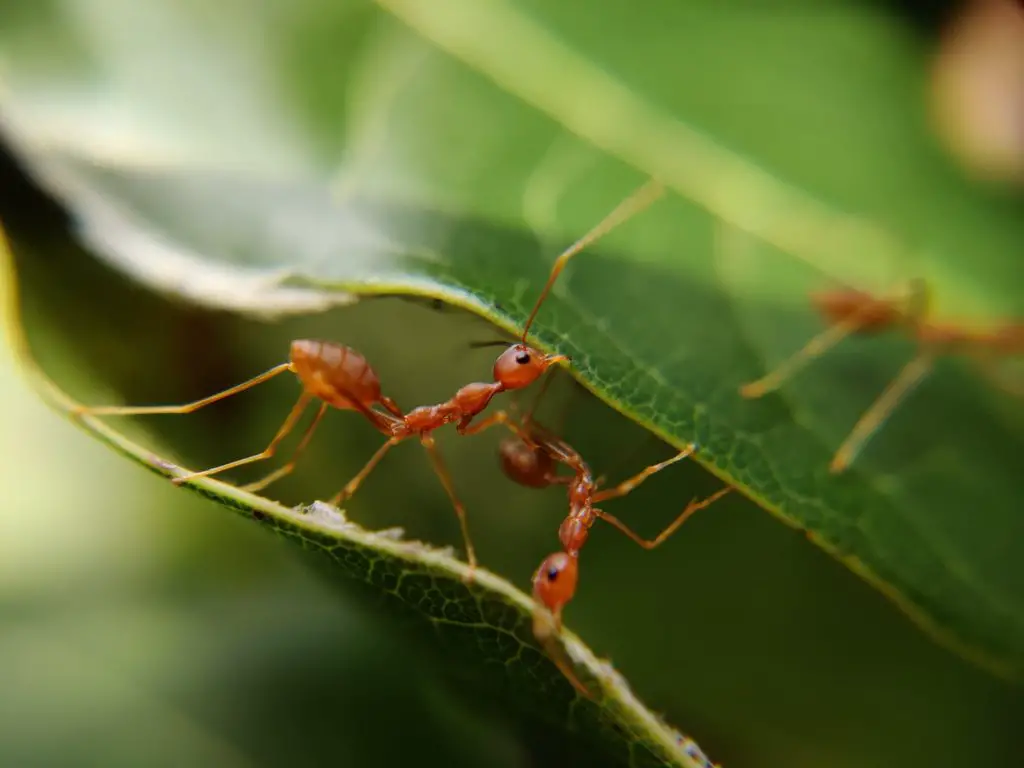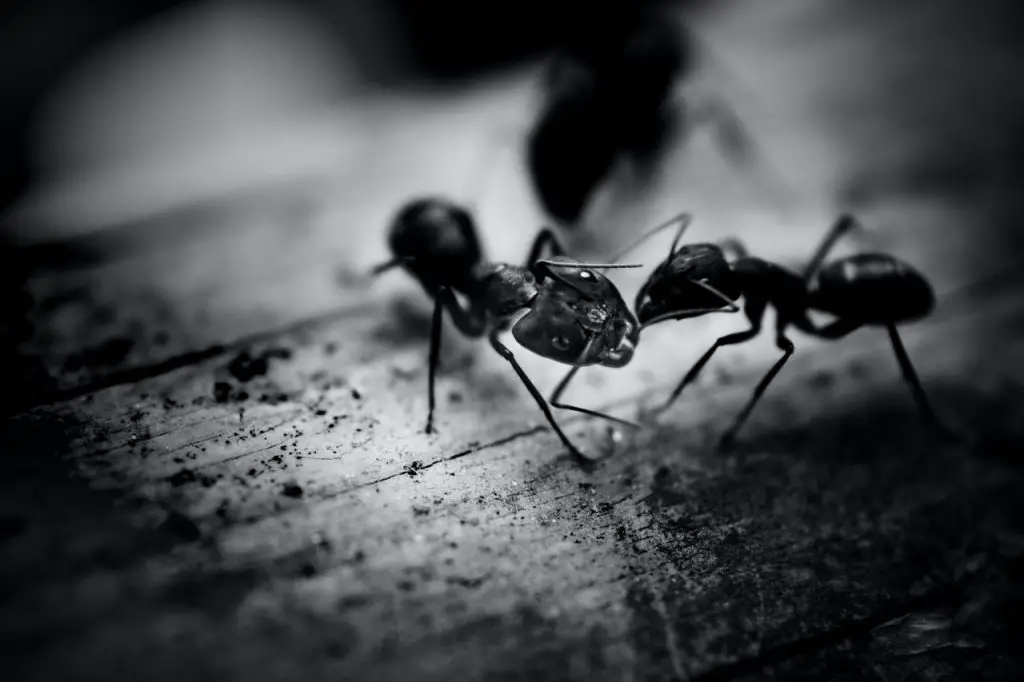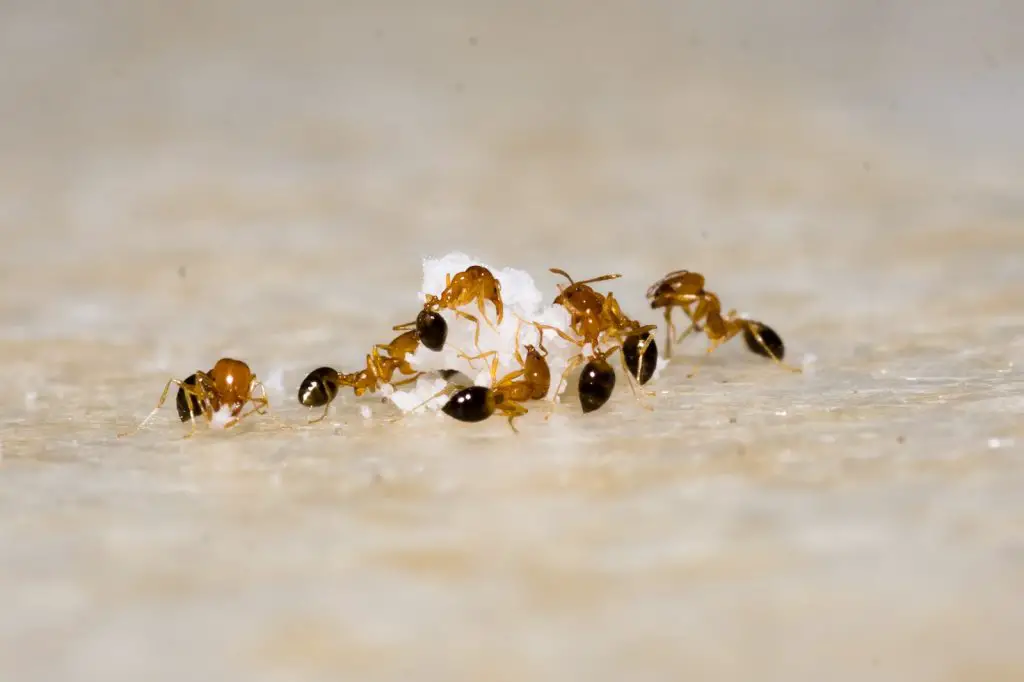Have you ever wondered what temperature do ants die? Ants are small insects that are commonly found in a variety of environments, from hot desert climates to cold mountain tops. In this blog post, we will explore the temperature at which ants die and how they are able to survive extreme heat and cold.
We will delve into the thermoregulatory abilities of ants and how they are able to adapt to different temperatures, including the temperature at which they die. By the end of this post, you will have a better understanding of the impressive survival skills of these tiny creatures and what temperature they can withstand.
How Ants Survive Extreme Temperatures
Ants have a number of mechanisms that allow them to survive in a range of temperatures, including the ability to thermoregulate, move to cooler or warmer areas, and go into a state of torpor.

However, it’s important to note that there is a limit to what temperature ants can withstand. While ants are able to survive high temperatures for short periods of time, prolonged exposure to high temperatures can be lethal.
Similarly, while ants are able to survive cold temperatures for extended periods of time, extreme cold can also kill ants if they are unable to find a warmer area or go into a state of torpor.
So, while ants are able to survive in a wide range of temperatures, it’s important to remember that there is a point at which the temperature becomes too extreme for them to survive. Understanding what temperature kills ants is important for understanding their behavior and ecology, as well as for designing ways to control ant populations in certain areas.
At What Temperature Do Ants Die?
While ants are able to survive in a wide range of temperatures, there is a point at which the temperature becomes too extreme for them to survive.
Ants can withstand high temperatures for short periods of time, but prolonged exposure to high temperatures can be lethal. On the other hand, ants are more resistant to cold temperatures and are able to survive freezing temperatures for extended periods of time
How Cold Ants Can Survive?
Have you ever wondered how cold ants can survive? Ants are able to survive cold temperatures for extended periods of time thanks to their ability to go into a state of torpor. During torpor, ants enter a state of inactivity and lower their metabolism in order to conserve energy. This allows them to survive in environments with very little food or water, as they are able to go without these necessities for extended periods of time.
In general, ants are able to survive freezing temperatures for extended periods of time. This is especially true for ants that live in cold climates, as they are adapted to survive in these environments. However, it’s important to note that the exact amount of time that ants can survive in freezing temperatures depends on the species and the specific conditions.
So, to answer the question of how cold ants can survive, it’s safe to say that they are able to survive freezing temperatures for extended periods of time. While the exact temperature range may vary depending on the species and conditions, it’s clear that ants are impressive creatures that are able to adapt and survive in a wide range of temperatures.
How Hot Can Ants Survive?
After thinking about how cold ants can survive? You must have also wondered how hot ants can survive? Ants are able to withstand high temperatures for short periods of time, but prolonged exposure to high temperatures can be lethal. The exact temperature at which ants die depends on the species and the length of exposure. In general, ants can survive temperatures up to about 113°F for a few hours, but prolonged exposure can be lethal.
It’s important to note that the ability of ants to survive high temperatures also depends on the humidity of their environment. High humidity can make it more difficult for ants to dissipate heat, which can reduce their ability to withstand high temperatures.
Overall, it’s clear that ants are able to survive in a wide range of temperatures, but there is a limit to how hot they can survive. While the exact temperature range may vary depending on the species and conditions, it’s safe to say that prolonged exposure to high temperatures can be lethal for ants.

Conclusion
Ants are truly remarkable creatures. They are able to adapt and survive in a wide range of temperatures thanks to their ability to thermoregulate, move to cooler or warmer areas, and go into a state of torpor. However, it’s important to remember that there is a limit to what temperature ants can withstand. While ants can withstand high and low temperatures for short periods of time, prolonged exposure can be lethal.
So the next time you see an ant crawling on a hot sidewalk or in a pile of snow, you’ll have a better understanding of their impressive survival skills. It’s amazing to think about the ways in which ants are able to adapt and thrive in such a wide range of environments, despite the temperature extremes they may encounter. Understanding the limits of what temperature kills ants is important for understanding their behavior and ecology, as well as for designing ways to control ant populations in certain areas.



